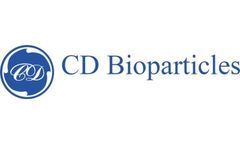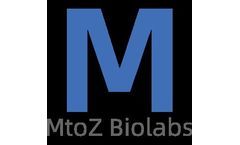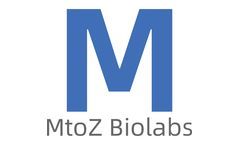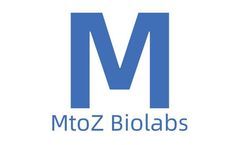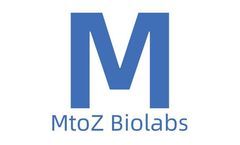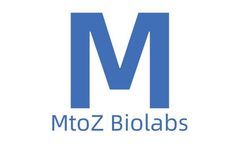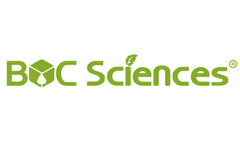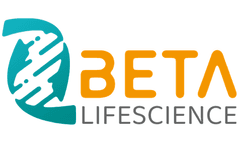Immune Regulation Articles & Analysis
32 articles found
This modification system plays a crucial role in cellular biological processes such as tumor metabolism and immune regulation while also shaping the tumor microenvironment through control of translation efficiency and mitochondrial function along with tRNA fragment generation. ...
They constitute an intricate "glycocode" that orchestrates numerous cellular functions from embryonic development to immune regulation and disease progression. N-Glycan Profiling: Beyond the Basics N-Glycan Profiling reveals the remarkable complexity of these structures that anchor to asparagine residues. ...
Upon activation platelets discharge internal granules and extracellular vesicles (EVs) which play key roles in thrombosis and hemostasis besides immune regulation thus has a reliable basis for drug delivery systems. ...
Cytokines are small proteins that play a crucial role in cell signaling, particularly in the immune system. They regulate inflammation, immunity, and hematopoiesis, making them essential for understanding various biological processes and disease mechanisms. ...
Mouse models play a pivotal role in this field, as their immune system shares many similarities with that of humans. A key aspect of studying the immune system involves analyzing cytokines, chemokines, and growth factors—molecules that regulate immune responses and influence disease progression. ...
Cytokines and growth factors are essential signaling molecules that play pivotal roles in immune regulation, inflammation, tissue repair, and numerous physiological and pathological processes. ...
At present, recombinant protein drugs are widely used in various fields such as tumors, autoimmune diseases, metabolic diseases, geriatric diseases, and degenerative diseases.FcyR (Fc gamma receptors) are receptors expressed on the surface of immune cells, primarily responsible for recognizing and binding to the Fc (Fragment crystallizable region) part of antibodies. ...
Antibody drugs have shown remarkable therapeutic effects in the treatment of various diseases, such as cancer, autoimmune diseases, inflammatory diseases, immune regulation, and ophthalmic diseases.In the production process of antibody drugs, the culture medium plays a very important role. ...
Antibody drugs have shown significant therapeutic effects in the treatment of various diseases such as cancer, autoimmune diseases, inflammatory diseases, immune regulation and ophthalmic diseases.Analytical Ultracentrifugation (AUC) technology has a wide range of applications in the research and development of antibody drugs. ...
Under normal conditions, they participate in intercellular communication, regulation of immune responses and embryonic development. In pathological states, changes in sialic acid proteins are associated with the development of various diseases, such as cancer, infectious diseases and autoimmune diseases. ...
They play an important role in many biological processes such as signal transduction, cell communication, immune response, hormone secretion, and so on. These proteins are usually synthesized in the endoplasmic reticulum (ER) of the cell and then transported out of the cell through a series of biosynthesis and transport processes. Secretome, the scientific field that studies the ...
Immune receptors, which are protein molecules expressed on the membrane of immune cells, play a key role in regulating immune responses. ...
To ensure the effectiveness and safety of these antibody drugs, it is necessary to perform activity testing.Definition of Antibody ActivityThe activity of an antibody drug usually refers to its ability to bind to the target antigen and how it affects the target in a biological function, such as neutralizing viruses, killing tumor cells, or regulating immune ...
Treg cells are a subset of T cells that regulate a variety of immune functions, including natural Treg cells and induced Treg cells. Their main function is to suppress the activation of other effector T cells, induce immune tolerance and exert immunomodulatory effects. Treg cells secrete IL-10 and transforming growth factor-ß (TGF-ß), ...
Introduction of TSH The Thyroid-Stimulating Hormone (TSH) protein is a crucial player in the regulation of thyroid function. In this blog post, we will explore the structure, function, and significance of TSH in maintaining a healthy thyroid. ...
Their primary roles include: Immune Regulation: Cytokines orchestrate the complex interplay of immune cells during infection, inflammation, and tissue repair. ...
Ly6c+ cells serve as targets for treating IBD, and the immune-suppressive cytokine IL-10 has been reported to inhibit IBD. To induce long-term IL-10 production, IL-10 mRNA-loaded LNP was first prepared, followed by incubation with anchored secondary scFv enabling targeting (ASSET) micelles at 4°C for 48 hours and subsequent incubation with anti-Ly6c monoclonal antibody for 30 ...
This orchestrated strategy affects various dimensions of the immune response. Given its multifaceted contribution to tumor advancement as an emerging immune checkpoint, CD73 stands out as a promising target for cancer treatment. ...
They often interact with other signaling molecules and receptors to regulate cellular activities. Inflammation and Immune Responses: Some Ig-superfamily CADMs are involved in inflammatory responses, guiding leukocytes (white blood cells) to sites of inflammation or injury. ...
In addition, it aids in the development of regulatory T cells (Tregs), thereby producing peripheral T cell immune tolerance, as well as regulating the proliferation and differentiation of activated T cells. ...



